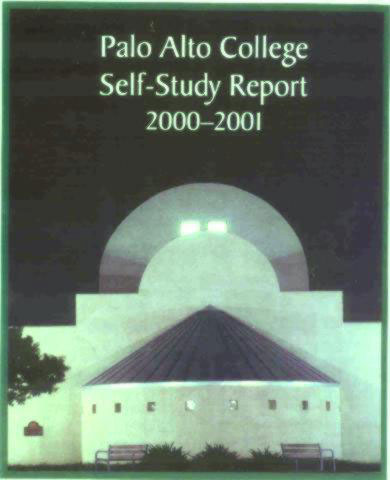
SACS’ main goal is to see if Palo Alto meets 362 requirements the college needs to remain an accredited learning institution.
Every college or university has to be evaluated every ten years to make sure they are in compliance with SACS’ standards.
Dr. Dorothy Haecker, Instructor of Philosophy and Director of the Self -Study, has been the primary person involved with Palo Alto’s preparation for the March 5-7 visit. The 14-member team from Virginia, Mississippi, Florida and other parts of the country will walk around the school, visit departments, interview faculty and staff, ask to view documents, and even ask random students about the quality of Palo Alto, Haecker explained.
“We are already getting interview preferences from them,” Haecker said.
When Palo Alto studied themselves, they only found 11 out of the 362 criteria that they thought would be non-compliant to the SACS team.
“The minute we found something that we thought was out of compliance, we fired an ‘early alert’ to the administration,” Haecker said.
Haecker stressed the importance of SACS’ arrival and our own Self-Study to students.
“It is important for students to understand that there is accountability, that we have to account for our service to them to people higher than we are,” said Haecker. “I also want them to know that these people are going to come in and compare us to every community college in 11 states.”
Billy Joe Reyes, an undeclared freshman, heard of the SACS’ visit but did not fully understand their purpose.
“I didn’t realize that people at this school were working so hard to meet requirements,” said Reyes. He is optimistic about Palo Alto exceeding SACS’ expectations.
“I have faith in the Palo Alto system because the instructors are excellent. They go far beyond the call of duty,” said Reyes.
Jose Gomez, a sophomore Criminal Justice major, did not know about the upcoming visit. If he were approached by a SACS team member, he would say, “It’s a good school, because there is a lot of help available.”
Gomez wants to learn more about the Self-Study. “They [teachers] don’t explain it to students,” said Gomez. “Maybe they could have an orientation to explain what SACS does and what students can do to help the school.”
The SACS team that will evaluate the college ranges from professors to board members to a college president.
Just last month, Dr. David Goetsch, chair of the accreditation team, came to see if Palo Alto was ready for the visit. If he did not think Palo Alto was ready, he could postpone the visit, Haecker explained.
“He really thought we were in good shape and had very kind things to say to us,” said Haecker. “He said that Palo Alto was ready for the visit at the beginning of March.”
Palo Alto’s Self-Study Committee researched and documented every area on campus to make sure the college was compliant with the 362 criteria. Members included faculty, staff and students. The committee gave our school 35 suggestions, 9 commendations and 11 recommendations.
Recommendations are the areas that need to be fixed. These are SACS’ main concern. These requirements have to be met to remain accredited. Some of the 11 recommendations that our campus found cannot be met because of lack of district funding.
“Some of these things that we found are not in our control to fix,” said Haecker. “For example, we found a severe lack of physical facilities on campus and tremendous space issues.”
Commendations are what the school has awarded itself. Last October, the Self- Study committee issued Palo Alto nine commendations for its excellence in the library, learning environment, outstanding faculty, overall student development services, and for the number of grants and contracts that have been awarded to Palo Alto students. Suggestions are ideas that would improve the school, but they are not mandatory.
“We hope they agree with us, because we think we’ve done our job very well,” said Haecker.